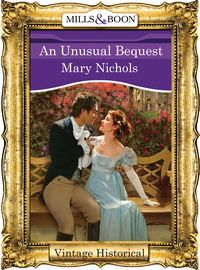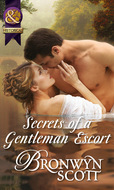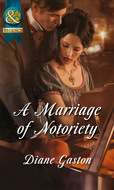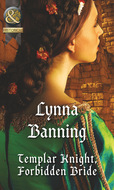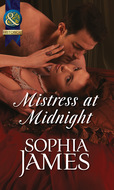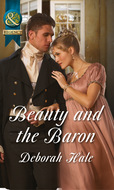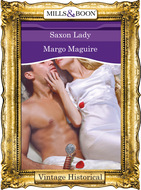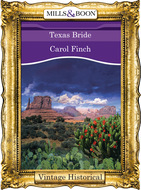Kitap dosya olarak indirilemez ancak uygulamamız üzerinden veya online olarak web sitemizden okunabilir.
Kitabı oku: «An Unusual Bequest», sayfa 2
Stacey ignored him, but the man leaned forward and poked his knee, repeating his question. Forced to open his eyes, Stacey found the fellow close to him, breathing brandy fumes through blackened teeth, although Stacey noticed he had bought himself a new suit of clothes and was looking tolerably smart. ‘I beg your pardon?’
‘Don’t need to beg my pardon, friend, I was merely passing a comment that we have met before.’
‘Have we?’
‘I believe so. Hobart’s the name. Lord Hobart of Easterley Manor.’
‘Your servant,’ Stacey said without enthusiasm. He had taken an aversion to the man, though he could not have said why. It wasn’t simply his looks, which he could not help, but his manner, which was rough and coarse. And the derogatory way he had spoken of his sister-in-law was not the way of a gentleman. He did not know the woman, but, whoever she was, she surely did not merit such disparagement, especially if she had been looking after his property for him.
‘And you are…?’ Cecil prompted.
‘My name can be of no interest to you.’
‘Indeed it is, if we are acquainted.’ He suddenly banged his head and laughed. ‘Malcomby, that’s it! You are the Earl’s son. I knew I recognised your physog.’
Stacey groaned inwardly. It seemed the man did know who he was. ‘Stacey Darton,’ he said.
‘The Viscount. Well, well. After all these years.’
‘I am afraid I do not recall…’
‘No, you would not, I was only a young shaver at the time and you were a Captain of Hussars, very grand, I thought you. I might have taken up the sword to defend king and country myself if I had not had business on the sub-continent. Do you still not remember where we met?’
Stacey shook his head. In spite of his apparent indifference he was curious.
‘It was at my mother’s funeral. She was Madeleine Stacey, your father’s cousin. You were named for her.’
‘Cousin?’ He remembered now. Madeleine was daughter to his father’s aunt and as, at the time of her death, he had returned from India and was waiting to rejoin his regiment, he had gone with his father to the funeral. And this uncouth man was her son. He could hardly believe it, did not want to believe it.
‘That makes us second cousins, does it not?’ Cecil held out his hand. ‘How d’ you do, Cousin.’
Stacey, never an uncivil man, shook the hand and was then obliged to shake hands with his companions who were agog with curiosity. ‘May I present my friends,’ Cecil said, ‘This is Mr Augustus Spike.’ He indicated the beetle-browed man sitting beside him. ‘And that spidershanks sitting beside you is Sir Roland Bentwater. We are off to Parson’s End to claim my inheritance.’ He evidently had not noticed Stacey at White’s the night before. ‘My dear father recently slipped his wind, but, though he sent for me, I sadly did not arrive in time to see him alive.’
‘I am sorry to hear that,’ Stacey said politely.
‘And you, where is your journey taking you?’
‘Home to Malcomby Hall.’
‘Is it the first time you have been home? Since the war, I mean.’
‘No. I returned six months ago.’
‘And how is your delightful wife?’
‘She died several years ago.’
‘I am sorry for that.’ The man did not seem to notice Stacey’s perfunctory answers. ‘And how are the Earl and Countess?’
‘They are both well.’
‘Good, good. I wonder you choose to travel by public coach when there must be horses and carriages to spare at Malcomby Hall.’
Stacey was beginning to wonder himself; his father would have allowed him to take the carriage, but he knew his mother used it all the time and he did not want to deprive her of it, especially as he did not know how long he would be gone. There was a gig and a phaeton, but they were not suitable for long journeys, nor would his parents use them when the weather was inclement, as it had been. The stage seemed the sensible choice, but now it looked as though he was going to have to spend several hours in the company of this unlikeable fellow.
He was saved having to answer when the coach pulled up at an inn for their first change of horses. He did not bother to go inside for refreshment, but waited in the coach. Half an hour later, they were off again, but, as more passengers had joined them and kept the conversation going, Stacey had only to put in an occasional remark. It grew dark and the countryside could no longer be seen except as a blur of trees and hedgerows; the talk became more desultory and many of the passengers dozed. It was easy for Stacey to pretend to do likewise.
It was gone three in the morning when the coach rumbled into the yard of the Great White Horse in Ipswich. ‘This is where we part company, Cousin,’ Cecil said. ‘Parson’s End is not on a regular coach route, so we must rack up here and make other arrangements to continue our journey. But we are in no hurry and who knows—we might find a snug little inn somewhere where the play is good.’
The coach pulled up in the yard of the inn and immediately the business of changing the horses was begun. Cecil Hobart and his friends tumbled out. Before shutting the door, Cecil turned back to Stacey. ‘Give the Earl and Countess my greetings, won’t you?’ he said. ‘You must bring them to Easterley Manor to visit when I have settled my affairs.’
‘They do not travel far these days.’
‘No? Well, neither did my father. But there is nothing to stop you coming, is there? Families should not lose touch, should they? But leave it a day or two, give me time to settle in.’
Stacey smiled and bowed his head politely in response. That the man should turn out to be a relative was repugnant to him and he had no intention at all of visiting him, or even of thinking of him again. People were always claiming they knew him or were related to him, simply because of his title and wealth and whatever advantage they thought the connection might bring. Only in the army with people like Captain Gerard Topham was his title ignored and he was recognised by his rank of Major, which was the one he preferred.
The coach continued on its way with different passengers, taking the road to Norwich where it stopped at the Old Ram coaching inn where he had left his mount. Here he ate breakfast before setting off on horseback to complete his journey.
The sun was warm on his back as he rode and the birds were singing as if to tell him the winter was gone and spring was on its way. His spirits rose. Perhaps he would find Julia in a better frame of mind, ready to listen to him and behave in a more comely fashion. He was sorely disappointed within a few minutes of turning in the great iron gates of Malcomby Hall.
Deciding to take a short cut through the trees rather than ride along the gravelled drive that meandered on its way to the house, his attention was drawn to Julia’s stallion, Ebony, tethered with another horse in a small clearing. He drew up and was wondering where Julia was and who owned the other animal, when he heard the sound of laughter coming from the direction of the lake. He dismounted and, leaving his horse with the others, trod softly towards the sound. Coming out of the trees at the side of the lake, he was stopped in his tracks by the sight that greeted him.
Cold as it was, Julia was bathing in the water and she was completely naked, her long blond hair loose and flowing out around her head; what was worse, there was a young lad with her, also completely naked. They were laughing and splashing each other like small children. But they were no longer children. She was thirteen, her body was that of a young woman. He was struck dumb for several seconds and then he roared. He roared loud and long. Startled, the boy and girl looked round and began a mad scramble to get out and retrieve their clothes, lying on the bank
‘Julia, stay where you are,’ Stacey shouted. ‘You, whoever you are, get dressed and come here.’
The boy scrambled into his pantaloons, picked up his shirt and coat, but, instead of approaching Stacey, disappeared into the trees. Stacey let him go and turned his attention to his daughter. She was out of the water and standing with her back to him, pulling a chemise over her head. Even in his fury, he could appreciate her youthful curved figure, with its neat waist. ‘When you are decently dressed, you may join me by the horses,’ he said, and turned from her to retrace his steps. She came to him two minutes later, flashing defiance from her blue eyes. ‘I don’t know why you are making such a fuss,’ she said as she scrambled into her saddle. ‘We were doing no harm.’
He could not trust himself to speak, but mounted his own horse and, picking up her reins, led her horse back towards the house without saying a word. It was an indignity that infuriated her and she tugged once or twice on the reins to try and wrest them from him, but, when she failed, slumped in her saddle and completed the journey in smouldering silence.
‘Go up to your room,’ Stacey told her when they reached the side door of the house nearest the stables. ‘Get dressed properly and, when you are fit to be seen, come down to the library. I wish to speak to you.’
After she had gone, he left the horses with the grooms and made his way slowly into the house, completely at a loss to know how to deal with the situation. He passed the drawing room on his way to the library. The door was open and his parents were sitting one on each side of the hearth; his mother was doing some embroidery and his father was reading a newspaper. They looked so complacently content, he was incensed all over again. ‘So this is how you look after my daughter in my absence, sir,’ he said, stopping in the doorway to glare at them. ‘Reading and stitching while she is running wild. Thanks to you, she is ruined beyond redemption.’
‘Oh, dear, what has she done now?’ his mother asked.
‘You may well ask. I rode through the woods on my way home and what did I find? My daughter, your beloved granddaughter, swimming in the lake…’
‘Oh, dear, it is so cold,’ Lady Malcomby said. ‘She will catch her death. I hope you have sent her to Susan to be warmed.’
‘If she were a boy I would warm her myself, I’d dust her breeches so she could not sit down for a week,’ he said.
‘Oh, come,’ his father said. ‘That’s doing it too brown.’
‘You have not heard the worst of it. She was naked as the day she was born—’
‘Naked!’ shrieked her ladyship, dropping her embroidery. ‘You mean she had no clothes on?’
‘Not even her chemise. Nor was she alone. There was some yokel with her. They were laughing and splashing each other…’
‘Was he also…Oh, dear, was he…?’
He nodded. ‘Not a stitch. Now perhaps you will tell me how to proceed, for I am sure I do not know what to do. I fear I shall thrash her as soon as look at her.’
‘Won’t help,’ his father said. ‘She is a child and I doubt she sees any wrong in what she has done and making a mountain out of it will only make her more wilful.’
‘She is not a child.’ He was almost shouting. ‘She is nearly a woman. If you had seen her as I did, coming out of the water, you would know that. Children grow up, you know, they do not remain children just because you would like them to. Had you not noticed that?’
‘Can’t say I had,’ his father said complacently. ‘But I suppose you are right.’
‘Then what am I to do?’
‘Lock her in her room for a few hours, I find that usually does the trick.’
Stacey laughed harshly. ‘Do you suppose locking her bedroom door will contain her? I’ll wager she can get out of the window and down the ivy as easily as I once could.’
‘Could you?’ his mother asked, diverted. ‘I didn’t know that.’
‘Who was the boy?’ the Earl asked.
‘I have no idea and tracking him down will serve no purpose; she is too young to be married off. It is Julia I am concerned with. She will have to go away to be taught how a young lady should behave. Someone, somewhere, must be prepared to take her.’ He turned from them and made for the library just as Julia descended the stairs. She looked demure in pale pink spotted muslin with a deep rose sash, and her hair tied back with a matching ribbon. She held her head high and was followed by Susan Handy, the stout, middle-aged woman who was her governess and who had been his nurse and governess. She had evidently come with her to make sure he did not carry out his threat to thrash her darling.
He smiled grimly. Miss Handy was quite unable to control her charge because she was too indulgent and too fat and breathless to run after her when she escaped. He ought to have done something about her when he first returned home two years before, but he hadn’t had the heart to dismiss her, for where would she go? ‘I do not need you, Miss Handy,’ he said coldly. ‘You may wait for Julia upstairs.’
‘You will not be unkind to her, Master Stacey? I am sure she is very sorry for being naughty and will be good in future.’
‘That we shall see,’ he said coldly, ushering his daughter into the library ahead of him. His red-hot fury had abated and he was now icily calm.
‘Papa…’ she began.
‘You will not speak, you will not say a word until I say you may. I am very angry with you and if I ever get my hands on that young man…’
‘But it was not his fault. I found him bathing in the lake and it looked so inviting…’
‘That’s enough!’ he roared. ‘You will tell me honestly, did he touch you? Did he behave in any way…?’ He did not know how to put into words what he was asking.
‘Of course he did not,’ she said haughtily. ‘He would not dream of laying hands on the granddaughter of an earl.’
He breathed a sigh of relief. ‘Let us be thankful for that. You are going away to school, even if I have to scour the length and breadth of the country to find one that will take you, and nothing you can say or do will make me change my mind.’
She would not cry. He could see her herculean efforts to control her tears in the way she blinked and gulped and lifted her chin even higher and he admired her for it, but he would not weaken. ‘Until I say you may, you will stay in your room, and Miss Handy will find some fitting study for you. A book on ladylike behaviour would be suitable if such a thing is to be found.’
‘Yes, my lord.’
My lord, she called him, just as if they were mere acquaintances and not father and daughter. It cut him to the quick, but he made no comment and waved her away, too choked to speak. He watched her go, wanting to rush after her and hug her, to tell her everything would be all right and he understood, but he could not; she was too much like her dead mother. He had to find an establishment headed by an understanding woman who would make a lady of her without breaking her spirit. And where was such a one to be had?
Chapter Two
Charlotte was chasing children along the beach when Stacey first saw her, running round and round and being caught and then setting off again, her arms wide, her bonnet askew, while the children squealed their delight. He reined in his horse to watch. His father had told him of a school in Ipswich that might take Julia and he had decided to ride along the coastal path rather than take the stage. He didn’t know why, except that it might be quieter and more conducive to problem solving than being bumped about in a coach and having to listen to his fellow travellers trying to make conversation. And he could take his time. Why he wanted to delay, he did not know. He strongly suspected it was because he was not sure he was doing the right thing in trying to pack his daughter off to strangers. Wasn’t that abrogating his responsibility? In the meantime she was safe enough at Malcomby Hall; his father had promised to keep a closer eye on her.
He had been deep in thought, clopping slowly along the cliff-top path when the sound of childish laughter brought him up short. How happy they sounded. He had ridden to the edge of the cliff and sat looking down at the beach. How many children were there? Ten, a dozen? Surely they could not all belong to the woman? She was how old? It was difficult to tell at that distance, but surely not old enough to have borne so many? And they were all different: some were dark, others fair, some warmly clad, others dressed in little more than rags. All but the woman were barefoot and a row of little boots and shoes stood sentinel on the side of the steep path that led down from the cliff top to the beach. The woman herself was dressed in a simple black gown and cape. Mourning, perhaps? But should a woman in mourning be laughing so joyfully?
Charlotte stopped suddenly, too out of breath to continue, and the children crowded round her, chattering excitedly. It was then she looked up and saw him. He was astride a big white stallion, dressed in a serviceable riding coat and a big cape. He doffed his tall riding hat and bowed to her. Discomforted, she looked away and began urging the children to gather up the seaweed and shells they had collected, while retying her bonnet, which had slipped down her back on its ribbons. Then she led them up the path towards him. He had not moved. Her first thought had been that it was Cecil who had come to claim his inheritance, but, as she drew nearer, she realised it was not. This man was a stranger and a very handsome one at that. Again, he doffed his hat, his brown eyes alight with amusement. ‘Good day, ma’am.’
‘Good day, sir.’
‘You have a very large family, ma’am.’ She was extraordinarily beautiful, he realised, with a clear unblemished complexion and eyes that were neither green nor blue, but something in between, and they looked him straight in the eye.
She smiled. ‘Yes, haven’t I? But I cannot claim them all for myself. These two are mine…’ She drew Lizzie and Fanny to her. ‘The others are my pupils.’
‘Ah, you are a schoolteacher.’
She opened her mouth to correct him, then changed her mind. Today she was a schoolteacher and perhaps, if Cecil proved not to be amenable, that was all she ever would be. She would try out the role on a stranger.
She loved teaching the little ones of the village; they were so receptive and eager to learn. Their parents had been against the idea at first, demanding to know why they needed an education; they themselves had managed without one and so would their sons and daughters. Charlotte and the Reverend Fuller had persuaded them to agree to send the children to school, so long as they were not needed to help on the farms with which the countryside around was dotted. Picking stones off the fields, scaring crows, watching the sheep, and helping with the harvest would always take precedence, and some were expected to look after younger siblings, but as they were allowed to bring the little ones to the classes, they gathered each afternoon in an unused coach house at the Rectory, which had been converted into a classroom, and here they learned to read and count. The bright ones among them were learning to write and to compose little stories, with particular attention being paid to their spelling and grammar.
Nor was that all; she taught them a little history and geography and took them out in the lanes and on to the beach to study nature. Being country children, they knew as much of country lore on a practical level as she did, but they all enjoyed the outings. And that included Lizzie and Fanny, whom she took with her. Lord Hobart, before he became too ill to know what was going on around him, had remonstrated with her for allowing her daughters to associate with the lower orders, but she had persuaded him there was no harm in it and it might do the girls some good.
The other children had been wary of them to begin with; Lizzie and Fanny, clad in their warm clothes and stout shoes, were inclined to be a little haughty, aware of their superior status, but they had soon learned to unbend. It was surprising, or perhaps it was not, just how much they were able to teach the other children and how much they learned themselves. Not all of it desirable!
Today, with her mind full of the loss of her father-in-law and uncertainty about the future, she had been unable to concentrate on lessons and had decided to bring the children to the beach to study the life in the pools left behind by the tide. It was the first really mild day of the year; the turbulent winds and heavy rain that had drenched the countryside from the beginning of the year right up until the day of Lord Hobart’s funeral had gone and now the air was clear. Down on the beach, the sea rippled gently over the sand, leaving behind little rock pools, teaming with microscopic life. It was so pleasant there and the children so excited, they had ended up playing a game of tag. She had been as energetic as the children, behaving like a child herself. Her hat had come off and the pins had come out of her hair, which could not be described as fair, but was not dark enough to be called auburn. To her it was a nothing colour, but to the observer on the cliff top it was delightfully unusual.
To have her behaviour witnessed by this rather superior horseman, who obviously found her conduct amusing, was disconcerting, but it was too late to revert to being the lady of the manor. She smiled. ‘Yes, sir. Today we are having a little break from formal lessons to learn about the sea and the tides and the creatures who live in the rock pools.’
‘So, I see.’ Again that smile. ‘I would that my school days had been as instructive.’ He was bamming her, she knew.
‘You did not like school?’ The children had grouped themselves around her, staring up at the man in curiosity, almost as if protecting her. She turned to them. ‘Put your shoes on, children.’
He watched idly as they obeyed, the older ones helping the smaller ones. One or two, he noticed, had no footwear at all. They were village children, being taught at a dame school, he supposed, but an unusual one. Dame schools usually confined themselves to teaching children their letters, and not even that sometimes. The teachers were often nearly as ignorant as their pupils, but this one was not like that. She was neat and well spoken and elegant, even in her plain black gown. ‘I liked it well enough,’ he answered her. ‘A necessary evil.’
‘How can you call it an evil? You undoubtedly had a privileged education, which is more than these little ones will have.’ She did not know why she was being so defensive towards a stranger, but he had put her hackles up, sitting there on that very superior horse with his very superior air, criticising her. ‘I can teach them little enough, but I do not think they see it as an evil.’
‘No, I am sure they do not, considering they are allowed to disport themselves running about in bare feet and shouting at the top of their lungs. What is that teaching them?’
‘It is teaching them to be happy, that there is more to life than hard work. It is teaching them to deal well with each other…’
‘And you think such lessons are necessary?’
‘Indeed, I do.’
‘And what else do you teach them? When you are in the classroom, that is?’
Why was he quizzing her, why did he not simply ride away? she asked herself. What did he know of poverty? His clothes were plain, but they were made of good cloth and were well tailored. His riding cloak was warm and the horse he rode was a magnificent beast with powerful muscles and a proud head. Its glossy coat was almost pure white, except for a grey blaze on its nose. ‘I teach them to read, write and count and a little of the world beyond their narrow horizon.’
‘And polite behaviour?’ He really did not need to ask; the children were lined up in pairs, holding each other’s hands, waiting patiently to be told to move.
‘Of course. But if you are referring to the affectations which go by the name of politeness in society, I am afraid that passes them by. Now, if you will excuse me, the wind is becoming a little chill and, unlike you, they do not have warm cloaks. Come, children.’
She picked up the smallest, a child of no more than two, and, taking another by the hand, led them away. The two girls she had claimed as her own were well clothed, but not extravagantly so. Did she have a husband? Or was the black dress a sign of widowhood? A gentlewoman come upon hard times, perhaps. She intrigued him.
He started his horse forward, moving slowly along the top of the cliff, thinking about schools and Julia and a handsome and intelligent woman who had managed to put him in his place. Out on the sea a few fishing boats rocked on the swell and ahead of him was a lighthouse, which reminded him of Gerry Topham. He supposed it was the kind of area he patrolled as an excise officer. He envied his friend his independence; not for him worries about a reprobate daughter and a father who insisted he ought to marry again. His experience of marriage did not incline him to repeat the experiment; as for children, they appeared to be more a bane than a blessing. But was that necessarily true? The schoolteacher seemed perfectly at ease with them and they had been quiet and obedient when she had brought an end to their game and led them up the path towards him. If only he could find someone like her to tame Julia. His aimless thoughts were brought to an abrupt end when his horse stumbled. He dismounted to see what the trouble was and realised Ivor had cast a shoe.
‘Damnation!’ he exclaimed and looked about him for signs of habitation where a blacksmith might be found. There was nothing ahead of him, but, looking back, he could see a stand of pine trees and a curl of smoke that could only be the village to which the woman and the children were returning. Smiling a little, he turned the stallion and led him back to the spot where he had met them and from there followed a well-defined path that cut through the pines. He wondered if he might catch them up, but he did not do so before he found himself in the middle of the main street of the village.
There was a huddle of cottages, a church, an inn, some farm buildings and a smithy, to which he directed his steps. There were a few women on the street, who watched his progress with curiosity, but no sign of the schoolteacher and her charges. He surprised himself by feeling a little disappointed.
He found the blacksmith in his heavy leather apron hard at work beating a horseshoe into shape on his anvil, the ringing tones of his hammer and the flying sparks filling the air with a kind of eternal rhythm, at one with the days of the week and the recurring seasons. Beside him stood a sturdy Suffolk Punch, patiently waiting to receive the new shoe. Stacey stood and watched, knowing it would not do to interrupt in the middle of the task, but when it was done, the old blacksmith looked up. ‘Yer need my services, stranger?’
‘I do indeed. My horse has cast a shoe. Can you fix it for me?’
The old man followed him outside to where he had left the stallion with its reins thrown loosely over the hitching rail. After a cursory inspection all round the animal, he said, ‘’ Tis a mighty fine animal yer have here.’
‘Yes. His name’s Ivor. I bought him off a Russian Count in Austria. He’s seen me through many a battle.’
‘Ridden him all the way from Austria, have yer?’ It was said with a chuckle.
Stacey laughed. ‘No, just from the other side of Norwich. Why do you ask?’
‘All his shoes are worn. It i’n’t no good replacing the one.’
‘No, I realise that.’
‘I’ve to take the horse back to the farm.’ He nodded his head in the direction of the Suffolk Punch. ‘It’ll take me an hour or so.’
‘It’ll be growing dusk by then, too late to carry on tonight. Is there an inn where I can rack up?’
‘There’s the Dog and Fox. They’ll give yer a bed. I’ll have the horse ready by the time yer’ve had yar breakfast.’
‘I’m in no hurry,’ he said, and wondered why he said it. He turned to take his bag from the saddle. ‘By the way, what is this village?’
‘Parson’s End, sir.’
Parson’s End. What a strange name for a village. He had heard it before, he realised. And then he remembered Lord Hobart. Wasn’t that his destination? What quirk of fate had brought him here? He could, he supposed, go the Manor and remind Hobart of his invitation, but then he remembered how unlikeable the man was and decided the Dog and Fox would suit him very well.
Charlotte was in the garden the following morning when a footman came to tell her she had visitors. Gardening was one of her special pleasures and she would spend hours tending her flowers and consulting Harman, the head gardener, on which plants to place where and how to propagate and care for them. Clad in an old fustian coat, a floppy felt hat tied under her chin with a piece of ribbon and a pair of stout canvas gloves, she would dig and weed and clip to her heart’s content. She had certainly not expected visitors today.
‘Who is it, Foster?’
‘Not one of your usual callers, my lady. Pushed past me and strode into the drawing room as if he owned the place…’
‘Perhaps he does,’ she murmured under her breath.
He looked startled, but went on as if he had not heard. ‘And him with two companions that I never would have admitted if I could have stopped them. I am sorry, my lady.’
‘Do not worry, Foster. I think I know who one of them is. Ask Cook to provide refreshment and tell them I will join them shortly.’
He left on his errand and she went in by a side door, along a narrow passage and up the back stairs to her room where she washed and changed hastily into a black silk mourning dress, a little more elegant than the one she had been wearing the day before, which had become stained with salt water, much to Joan Quinn’s disgust. She brushed her hair, coiling it back and fastening it with combs before topping it with a black lace cap, then she took a deep breath and went down the front stairs to the drawing room.
